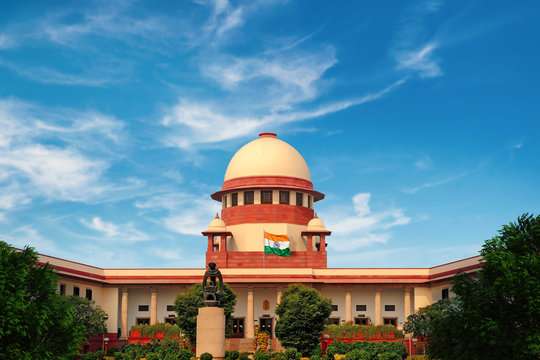The Centre on October 14, 2022, told the Supreme Court that “the methodology of the electoral bonds (EBs) scheme is a completely transparent mode of political funding”. The bench of justices BR Gavai and BV Nagarathna was hearing a batch of pleas challenging the provisions of the Finance Act 2017 which paved the way for anonymous electoral bonds. The bench decided to examine on the next date a plea by some of the petitioners for referring the case to the Chief Justice of India to set up a constitutional bench of five judges to examine issues related to the impact of EBs on free and fair elections.
The bench asked Solicitor General Tushar Mehta if the system provides for where the money is coming from. Mehta who was appearing for the union government, in his statement, said “absolutely my lords… The system is absolutely and completely transparent”. He added:
Let me tell my lords that the methodology of receiving money is so transparent that it is impossible to get any money in black or unaccounted money. Everything is transparent, nothing is in black now.
Mehta, further said that “there is a complete chain of how money is transferred from one account to another using the draft facility”.
Advocate Prashant Bhushan appearing for the NGO Association for Democratic Reforms (ADR), argued that the case involves issues that strike at the roots of democracy. He further said that “the Finance Bill, of 2017, which paved the way for the introduction of the electoral bond scheme, was passed as a money bill even though it wasn’t”.
Senior advocate Kapil Sibal, appearing for one of the petitioners, said that “this is a matter that should be heard by a larger bench”.
Both Bhushan and Sibal opposed the suggestion of the Solicitor General to schedule the next hearing in January 2023, citing the reason that the dates of the Gujarat assembly elections would be announced soon. Both argued that scheduling the hearing in January saying would mean more sales of bonds.
The apex court has now listed the case for hearing on December 6.
The electoral bonds system was introduced in 2017 by the way of a money bill introducing amendments to the Finance Act and the Representation of People Act. The scheme was notified by the central government on January 2, 2018. EBs are issued specifically to contribute funds to political parties. It is an instrument like promissory notes or bearer bonds that can be purchased by any individual, company, firm, or association of persons provided the person or body is a citizen of India or incorporated or established in India.
In 2017, various petitions were filed in the apex court challenging the provisions of the Finance Act 2017 which paved the way for anonymous electoral bonds. Terming the scheme an “obscure funding system which is unchecked by any authority”, the ADR, Communist Party of India (Marxist), and others approached the Supreme court in 2017 to challenge the scheme.














